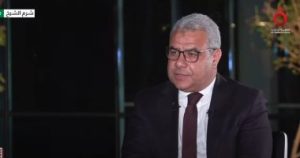Several political and electoral stakeholders are pushing to prohibit candidacy for more than two terms in the House of Representatives, coinciding with ongoing discussions and preparations to amend election-related laws.
Many believe this step would allow young talents and elites within political parties to run and access constitutional institutions, instead of waiting for those candidates who control their electoral districts for multiple terms to voluntarily step down.
In this regard, Mahdi Limina, a member of the National Council of the Authenticity and Modernity Party, explained that the dominance of certain figures in parliamentary seats for many years has caused dissatisfaction among broad segments, especially youth and skilled individuals who could not secure their positions due to the presence of those who master and control the electoral process in their districts.
Limina expressed hope, in his statement to Hespress electronic newspaper, that proposals to be submitted to the Ministry of Interior would include clauses limiting the number of terms a candidate can run for.
The Casablanca municipal councilor clarified that this step would enhance the participation of young talents and competencies in the electoral process, thereby renewing the elites.
The same speaker also noted the necessity of including provisions in election laws to expand incompatibility cases, enabling more young people and women to take responsibility in public affairs management.
Meanwhile, Halim Salahuddin, a researcher in parliamentary work, considered this measure a legislative option among others available, which could be adopted at this stage before preparations for the 2026 legislative elections.
He explained in his statement to Hespress electronic newspaper that “the philosophy of democracy is to empower the voter with the genuine right to choose whether to renew confidence in the candidate or not, but our particularity under our emerging democracy requires regulation at this level, obliging political parties to renew the political elite at the parliamentary level, alongside the possibility of extending this to the organizational laws of local communities.”
The speaker also noted that the constitution neither permits nor prohibits this matter, which remains very possible as a legislative option among others, falling under the legislative authority of parliament, which can amend the organic law in this direction to serve Morocco’s internal democracy.
Salahuddin emphasized that “Organic Law No. 27.11 related to the House of Representatives does not address the issue of limiting electoral terms, but considering comparative international experiences, such as Latin American countries, notably Mexico, which suffered from the logic of ‘electoral professionalism’ with its negatives affecting the core trust between the people and the legislative authority and the nature of national representation, led it to adopt the logic of banning consecutive candidacies — that is, winning one term, then making way in the next term to renew the parliamentary elite, and then allowing the concerned candidate to run again.”













Recommended for you
Exhibition City Completes About 80% of Preparations for the Damascus International Fair Launch
Talib Al-Rifai Chronicles Kuwaiti Art Heritage in "Doukhi.. Tasaseem Al-Saba"
Unified Admission Applications Start Tuesday with 640 Students to be Accepted in Medicine
Egypt Post: We Have Over 10 Million Customers in Savings Accounts and Offer Daily, Monthly, and Annual Returns
His Highness Sheikh Isa bin Salman bin Hamad Al Khalifa Receives the United States Ambassador to the Kingdom of Bahrain
Al-Jaghbeer: The Industrial Sector Leads Economic Growth